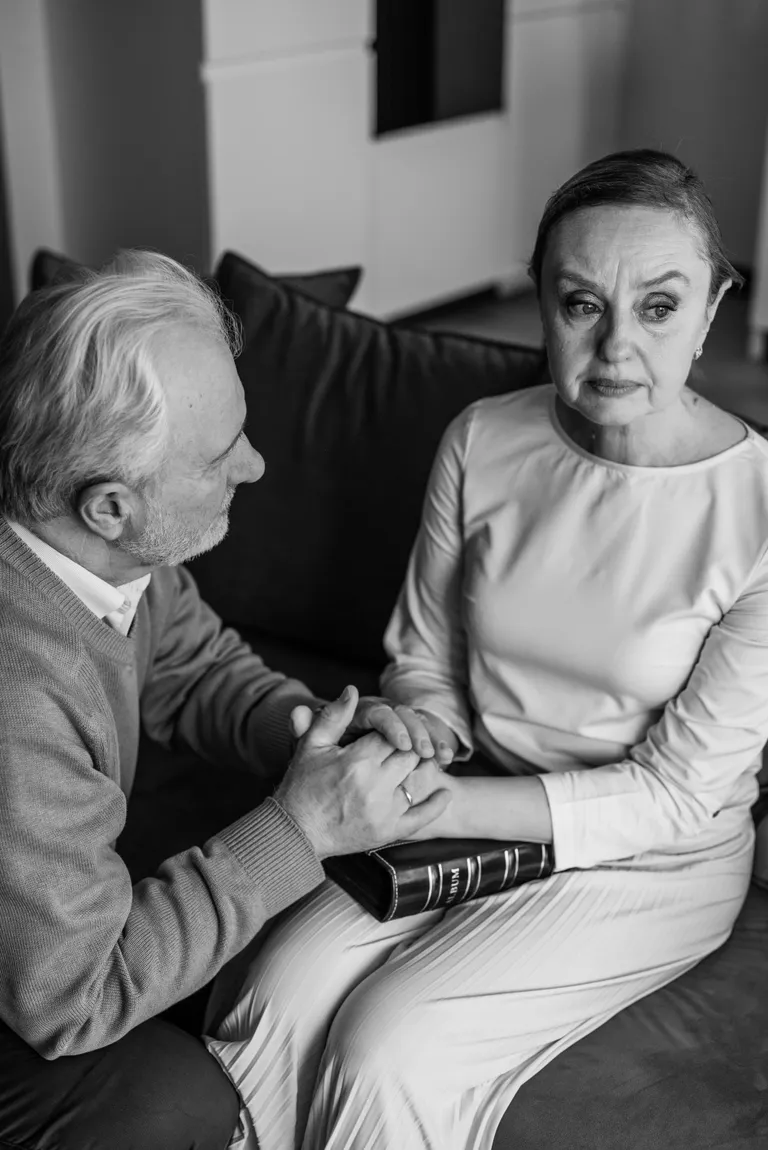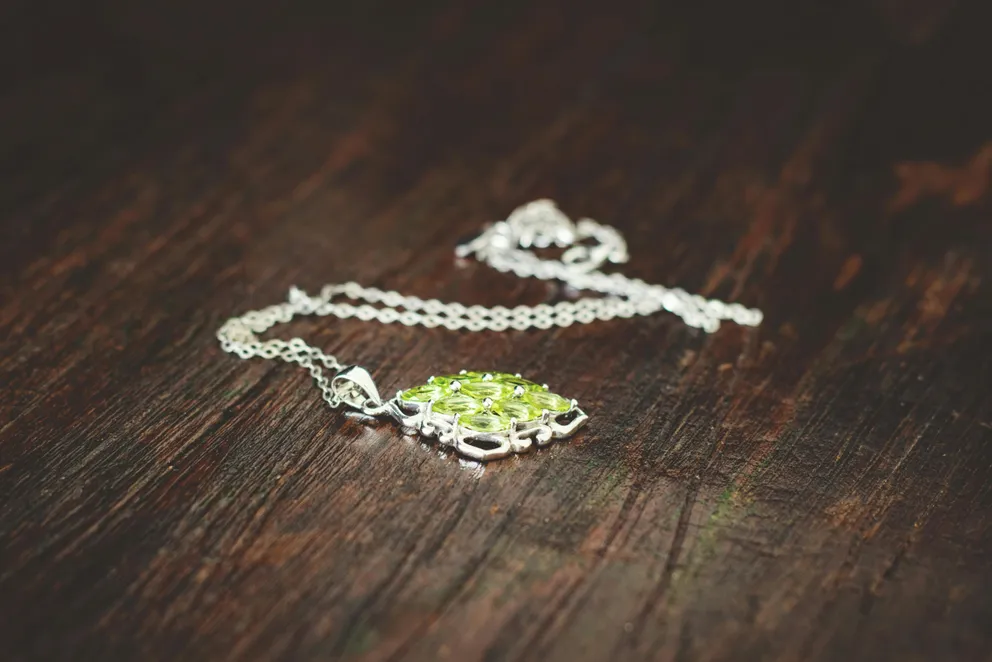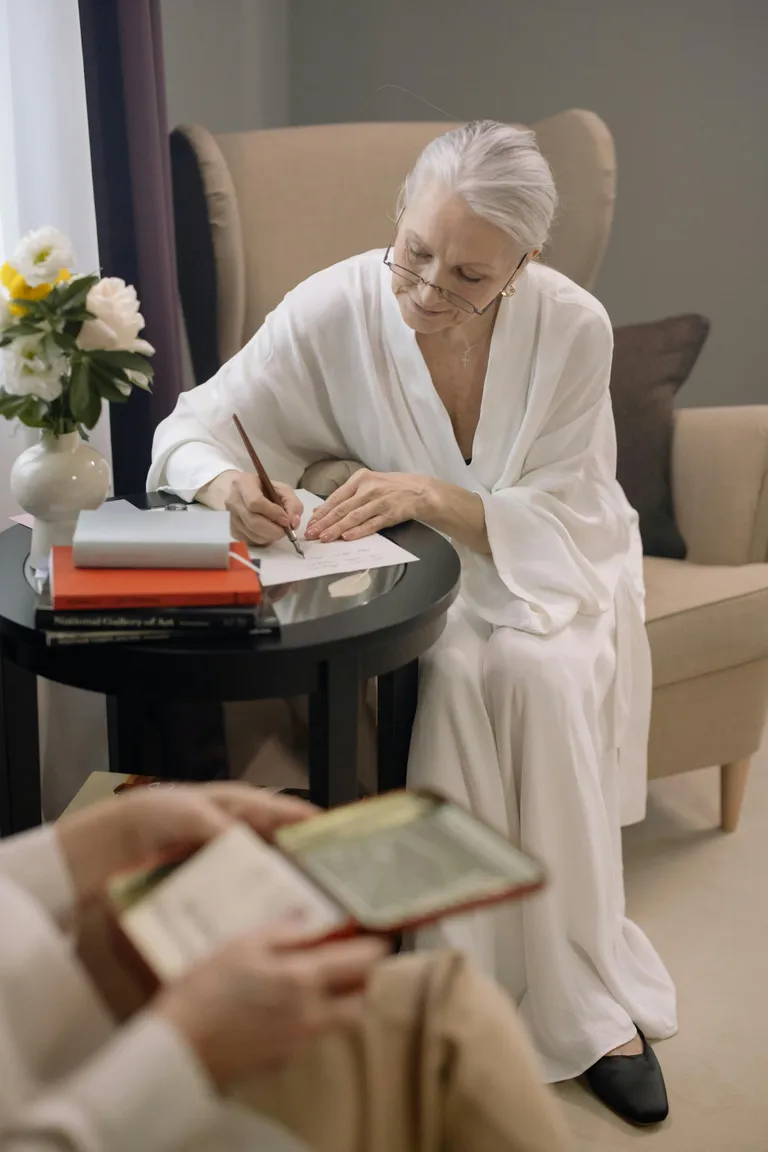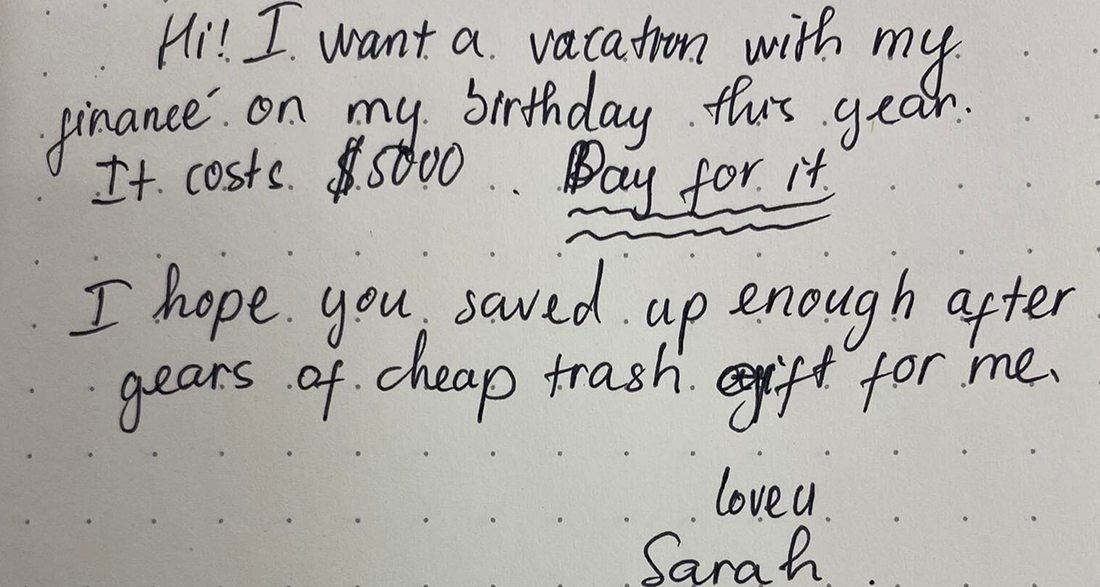My granddaughter, Sarah, is getting married soon, and my husband Jim and I were thrilled when she told us the news. We immediately started talking about how we could help make her wedding special. But everything changed a few days ago.
We got a letter from Sarah that left us both stunned. I still remember the moment I opened it. Inside was a check for $5,000 and a note that felt like a slap in the face.
“I want a vacation with my fiancé on my birthday this year,” the note read. “Pay for it. I hope you saved up enough after years of cheap trash gifts for me.”
Jim and I have always tried to be there for Sarah. We’re not wealthy, but we’ve given her what we could. We’ve sewn her handmade quilts, given her heirloom jewelry, and even helped with a down payment on a car. We also covered some of her education expenses. We always thought these things meant something to her.

Jim and I sat down at the kitchen table, the letter and check lying between us like a bad omen. My hands trembled with anger and pain.
“Can you believe this?” I asked, showing Jim the letter. Tears filled my eyes. “After everything we’ve done for her?”
Jim’s face was a mask of disappointment. “This is just plain wrong,” he said, his voice full of grief. “We’ve given her so much, and this is how she repays us?”
I felt my heart breaking, but beneath the hurt, a spark of determination was growing. “We can’t let this go,” I said firmly. “She needs to understand that her actions have consequences.”
Jim nodded slowly. “You’re right. She needs to learn about gratitude and respect. But how do we make her see that?”
We decided to collect everything we’d ever given Sarah. The decision was heavy on our hearts, but we felt it was necessary. We started in the attic, where we stored many valuable items accumulated over the years.

“Start with the quilts,” Jim said quietly, opening a big cedar trunk. I had spent months creating quilts for Sarah, and they were neatly folded inside. I ran my fingers over the intricate patterns, remembering the long hours I had spent on each stitch.
We then went to the guest room, where Sarah often stayed. I opened the jewelry box on the dresser, displaying the heirloom pieces I’d given her. Each piece had a story and a memory associated with it. I picked up a beautiful gold necklace that belonged to my mother.
“Do you remember when I gave her this?” I asked Jim, holding up the necklace. “She wore it to her high school graduation.”
We carefully wrapped the jewelry, using tissue paper to keep each piece safe. The box quickly filled with the items she had left behind over the years, including the bracelet from her Sweet Sixteen, the locket she wore to prom, and the earrings she borrowed for her first job interview.

Finally, we gathered the photos and mementos from family trips and holidays. There were so many memories captured in those pictures: Sarah blowing out birthday candles, opening presents on Christmas morning, and laughing during summer barbecues. Each photo was a reminder of happier times.
Jim’s eyes met mine, understanding dawning in his expression. “And the check?”

Jim smiled and reached for his phone. As he called the bank, I began gathering all of the gifts we’d given Sarah over the years. It was difficult yet necessary. I carefully placed the handmade quilts, heirloom jewelry, and other treasured possessions into boxes. Each item reminded me of happier times, but I pushed those memories aside.
We also decided to stop our financial support for Sarah’s wedding. I called the wedding planner to explain our decision. She was shocked, but understood when I told her about the circumstances.
“We’ve always prided ourselves on being generous,” I told Jim. “But we refuse to be taken for granted.”
Next, we wrote a final letter to Sarah.

Dear Sarah,
Your recent letter hurt us deeply. We have always given you our love and support, not out of obligation, but out of love. Your words and actions show a lack of gratitude and respect that we cannot ignore. We hope this difficult experience will help you reflect on your behavior and learn the importance of appreciation and humility. Love isn’t about material gifts; it’s about valuing the people who care for you. We hope you understand our decision and take this opportunity to grow.
Love always,
Grandma and Grandpa
The response was immediate. Sarah called us the next day, her voice shaking with anger. “How could you do this to me?” she yelled. “You are supposed to love and support me! You’re ruining my wedding and my life!”

I took a deep breath, trying to stay calm. “Sarah, we do love you. But love is not about giving in to every demand. It’s about helping you become a better person. You need to learn gratitude and respect.”
“You’re cruel!” she screamed. “I can’t believe you would do this!”
Some relatives sided with Sarah, thinking we were too harsh. Others, however, reached out to express their support. “You did the right thing,” one cousin said. “She needed to learn a lesson.”
In the end, we knew we had made the right choice. It was a hard decision, but we hoped it would help Sarah grow and understand the true meaning of love and family.


